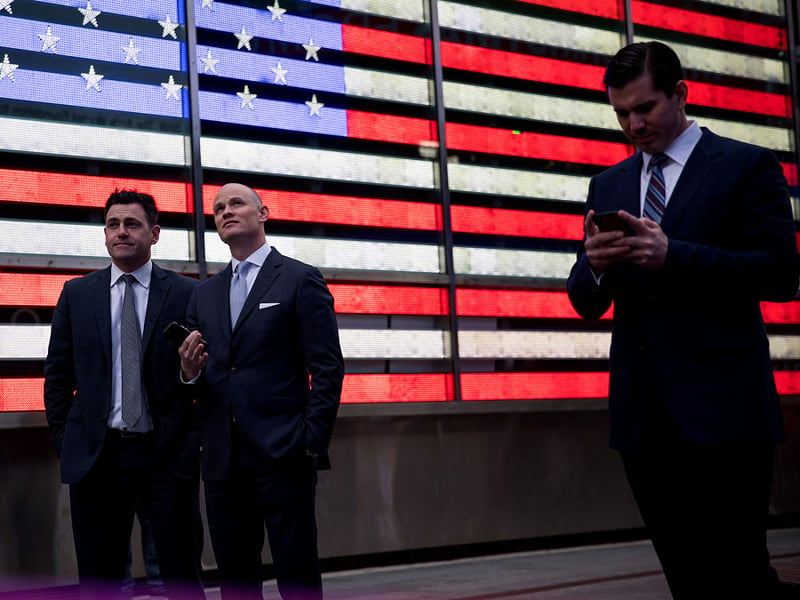

So far 2021 has brought a Democratic White House, GameStop Corp.’s short squeeze, and cautious optimism about an economic recovery that hinges on the success rate of the coronavirus vaccines that are now being distributed.
While final decisions around other impending factors such as stimulus checks and interest rates are still uncertain, investment experts from Commonwealth Financial Network, Carson Group and Anchor Capital Advisors talked about their expectations for how the year will shake out during an InvestmentNews webinar last Wednesday.
The gamification of investing, which spurred a market -- and media -- frenzy last week as the historic GameStop rally played out, was mostly “noise” and not necessarily something that will permeate other areas of the market, said Peter Essele, vice president of investment management and research at Commonwealth.
“I absolutely agree with the gamification,” Essele said. “The [GameStop] activity was the result of gamers trying to squeeze out hedge funds, but it’s a bit of noise ... The GameStop phenomenon overshadowed the Federal Reserve's dovish tone in regards to the softening of the economy in the latter portion of 2020.”
Still, it’s tough to ignore how the GameStop stock surge shed light on a larger industry issue, which is trader-induced market volatility, said Saumen Chattopadhyay, chief investment officer at Carson Partners. “We have seen this before, what I call ‘flows before pros,’” he said. “Volatility is on the rise with Robinhood and the GameStop surge that’s happening in the market.”
What’s also notable is the way the free trading app Robinhood and social media drove these stocks higher with no other market fundamentals contributing to the surge, said Jennifer DeSisto, chief investment officer with Anchor Capital Advisors.
“We don’t invest in most of these stocks -- so it hasn’t affected our client portfolios. But I do think it’s a sign of where we are in the markets,” DeSisto said. “What we watch for is whether there’ll be potential ramifications of seeing all this activity.”
For example, Robinhood placed restrictions on GameStop, AMC and other shorted stocks last week, and lawmakers like Rep. Alexandria Ocasio-Cortez, D-N.Y., and Sen. Ted Cruz, R-Texas, expressed deep concern.
In light of the new political atmosphere as the Biden administration enters the White House, conventional wisdom suggests a Democratic administration results in higher taxes and more regulation, which are not good for the economy, Essele said. “At Commonwealth, we tend to be big believers in not mixing politics with the economy or market,” he said. “I tell my clients to vote in the booth, not in your portfolio.”
This strategy reflects the fact that there's “very little evidence” to prove that the political party in power has longer-term impacts on the direction of the economy or stock market, Essele said.
“We all know that politicians like to take credit for wins or blame opponents for failures,” he said. “But the fact of the matter is, overall they have very little influence over the direction of things because the two most important inputs for long-term economic growth are technological innovation and population expansion within the framework of a free market system, and 200 years of our economy will tell you that.”
Given that, advisers should focus more on an aging demographic in the U.S. and the declining birth rate, Essele said. The birth rate is at 11.6 births per 1,000 people, according to the CDC. And estimates show that from July 1, 2019 to July 1, 2020, the population grew by just 0.35%, according to the Census Bureau, which is the lowest annual growth rate since at least 1900.
“It's very difficult to grow an economy when you have a shrinking population,” Essele said. “This is the situation that we see from a lot of other developed nations like Japan and Germany. So from my perspective and Commonwealth's perspective, we're less focused on the administration piece and more focused on the demographic shift over the next five years.”
When it comes to higher taxes and regulations, Chattopadhyay expects these to take second place for the Biden administrations behind its first objective -- pushing more money out the door into the hands of people and small businesses, he said.
“Given the balance of the Senate, I think further taxes increasing, especially on the corporate side, is highly unlikely,” he said. “More money comes into the economy with the fiscal policy that feeds into corporate profits, and the proof is in the pudding, with corporate profits almost making a full V-shaped recovery.”
The economy might start to feel the hangover from this additional economic relief once inflation effects start kicking in, DeSisto said.
“That’s when the Fed has to actually do something,” she said. “They've changed their policy in the last year to allow for higher inflation ... Once they start to see higher inflation is when they start adjusting interest rates higher, and that’s potentially when you can see some issues with the higher debt levels in this country.”
Missed the show? Check out the full webinar on demand here.

Relationships are key to our business but advisors are often slow to engage in specific activities designed to foster them.

Whichever path you go down, act now while you're still in control.

Pro-bitcoin professionals, however, say the cryptocurrency has ushered in change.

“LPL has evolved significantly over the last decade and still wants to scale up,” says one industry executive.

Survey findings from the Nationwide Retirement Institute offers pearls of planning wisdom from 60- to 65-year-olds, as well as insights into concerns.
Streamline your outreach with Aidentified's AI-driven solutions
This season’s market volatility: Positioning for rate relief, income growth and the AI rebound
